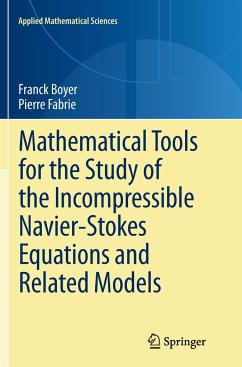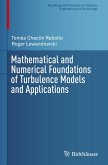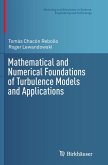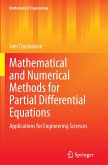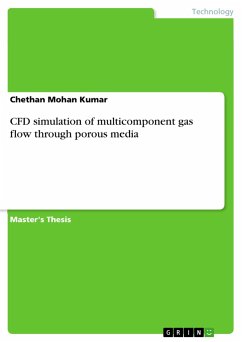The objective of this self-contained book is two-fold. First, the reader is introduced to the modelling and mathematical analysis used in fluid mechanics, especially concerning the Navier-Stokes equations which is the basic model for the flow of incompressible viscous fluids. Authors introduce mathematical tools so that the reader is able to use them for studying many other kinds of partial differential equations, in particular nonlinear evolution problems.
The background needed are basic results in calculus, integration, and functional analysis. Some sections certainly contain more advanced topics than others. Nevertheless, the authors' aim is that graduate or PhD students, as well as researchers who are not specialized in nonlinear analysis or in mathematical fluid mechanics, can find a detailed introduction to this subject.
.
The background needed are basic results in calculus, integration, and functional analysis. Some sections certainly contain more advanced topics than others. Nevertheless, the authors' aim is that graduate or PhD students, as well as researchers who are not specialized in nonlinear analysis or in mathematical fluid mechanics, can find a detailed introduction to this subject.
.
From the reviews:
"This book is a valuable contribution to the theory of Navier-Stokes equations and related models. It contains important existence, uniqueness and stability results, together with a rigorous analysis of all treated problems. It is warmly recommended to all researchers interested in modern nonlinear problems in fluid mechanics." (Mirela Kohr, zbMATH, Vol. 1286, 2014)
"This book is a valuable contribution to the theory of Navier-Stokes equations and related models. It contains important existence, uniqueness and stability results, together with a rigorous analysis of all treated problems. It is warmly recommended to all researchers interested in modern nonlinear problems in fluid mechanics." (Mirela Kohr, zbMATH, Vol. 1286, 2014)

